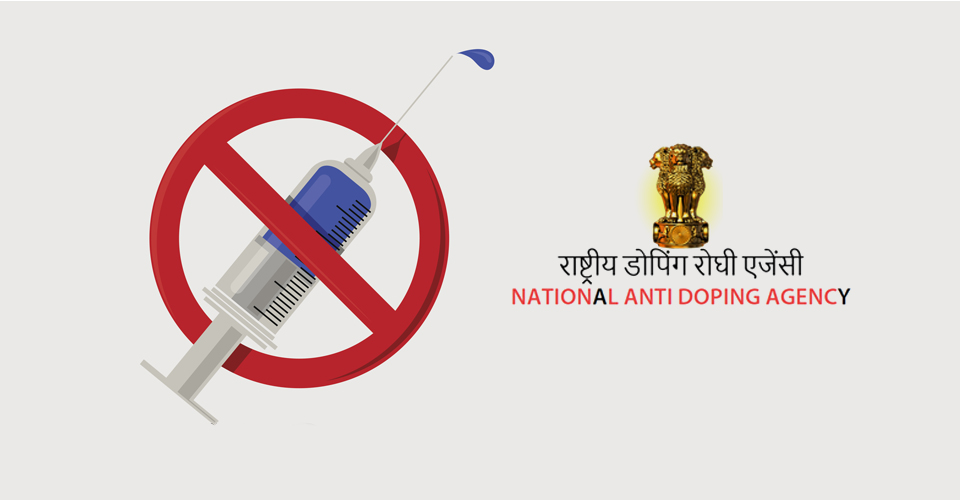
NADA can collect samples of cricketers only during domestic matches

After ten years of resistance, the Board of Cricket Control of India (BCCI), on Friday (August 9) agreed to come under the ambit of the National Anti-Doping Agency (NADA). Sports Secretary Radheshyam Julaniya said that the board would adhere to the anti-doping policy.
However, the Indian cricket board raised three issues with the written agreement: quality of doping kits, competence of pathologists and sample collection and timeliness of decisions.
The move came after cricketer Prithvi Shaw failed dope test which raised questions on BCCI’s anti-doping tests competence. The pressure from sports ministry during the clearance of South Africa’s tour and women’s teams also contributed to the decision.
The BCCI is an autonomous body, which neither comes under National Sports Federation nor runs on government funds and hence was reluctant to take this step.
A top BCCI official told The Times of India that the board would have eventually come under NADA if they wanted to send the women’s cricket team to the 2022 Birmingham Commonwealth Games.
Earlier, the International Dope Testing Management (IDTM) was given the job of collecting cricketers’ samples and submitting them to the National Dope Testing Laboratory (NDTL), however, now that responsibility will be given to NADA.
Also read: BCCI under NADA: Polls, move set to be discussed at CoA meet
After effects of the decision
The move will give certain powers to NADA and similarly affect the board and players. It is being said that NADA can collect samples of cricketers only during domestic tournaments and not while playing the bilateral series, unless ordered by the International Cricket Council (ICC).
The agency is bound by the rule that no player will be tested under NADA during ICC events and it’s the council’s prerogative whether to get the testing done by IDTM or NADA.
The ICC which will stick with IDTM’s test expects to be informed if a player is tested by NADA.
In fact, now with BCCI coming under NADA, World Anti-Doping Agency (WADA) can instruct ICC to approve NADA samples instead of IDTM.
BCCI’s issue with ‘whereabouts clause’
The board feels that testing outside the competition is a safety hazard and breach of privacy of the players.
Though the cricketers playing in bilateral or ICC events are not obliged to follow the clause set by NADA, domestic players will have to adhere to the code.
The clause requires every athlete to sign a declaration mentioning their hourly schedule and location for the next three months to NADA’s dope control officer for sample collection, failing which the player can be banned under breach of WADA’s Code of Conduct.
Also read: NADA admits its result-management system came under strain
BCCI’s next move
Once the decision is approved by the Committee of Administrators (CoA), BCCI will have to include a new doping clause in its rule book authorising NADA to conduct dope tests. They would also be expected to change the rules with respect to the Indian Premier League as the tournament is BCCI’s domestic event.
If the BCCI collaborates with the National Sports Federation (NSF), the board would fall under the much-awaited RTI act which people have been demanding to be levied upon. As of now, the BCCI is expected to follow WADA’s 2015 Code.
Also read: BCCI has agreed to come under NADA ambit, says Sports Secretary
NADA’s offer to BCCI
Sports Secretary, after making the announcement, answered to BCCI’s issues and assured the board that international quality, WADA-approved kits will be used for testing.
Trained pathologists, sample-collection and dope-control officers would be working alongside the players, however, officers with higher-qualifications would be available at a higher fee which would be borne by the board.
BCCI CEO Rahul Johri also questioned the timeliness of decisions taken by NADA, to which Julaniya said that 90% of the cases would be decided within the stipulated three month time span in which the domestic players are asked to keep NADA informed about their location on an hourly basis.
The CoA, led by Chairman Vinod Rai, Diana Edulji and Lt Gen (Retd) Ravi Thodge, abiding to their “zero tolerance” approach for doping will discuss the matter on October 22 during the BCCI polling session.

